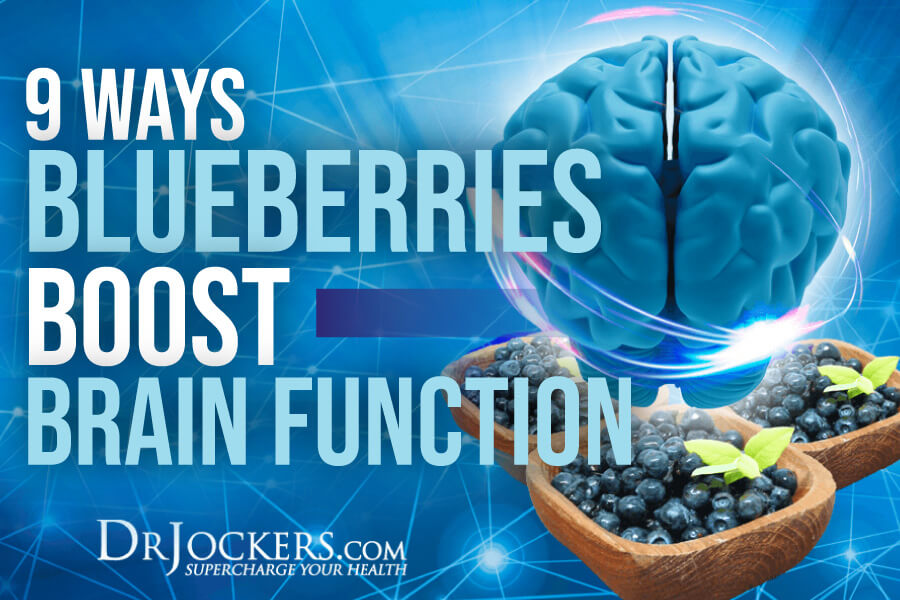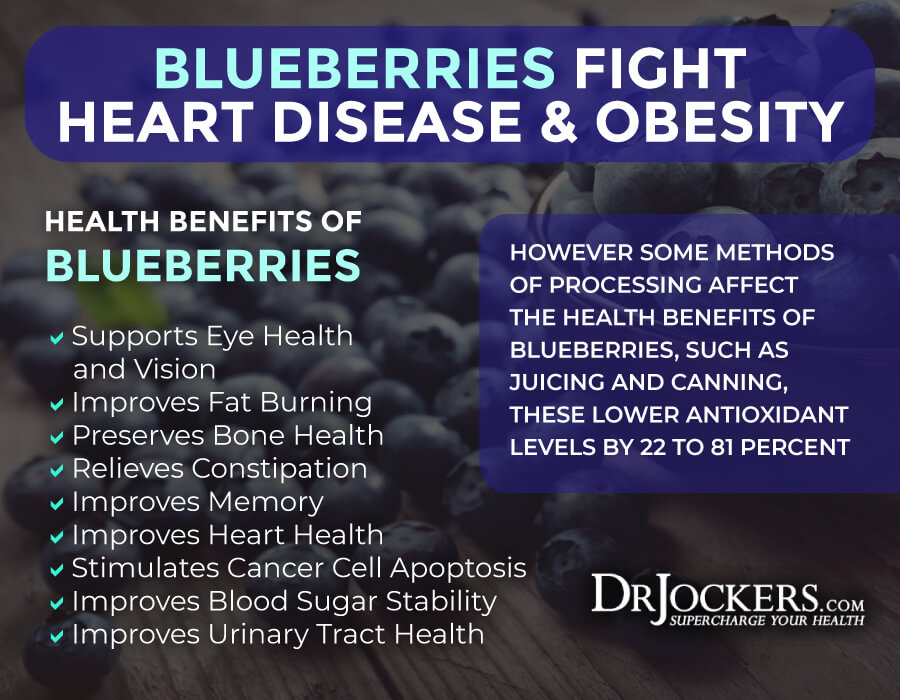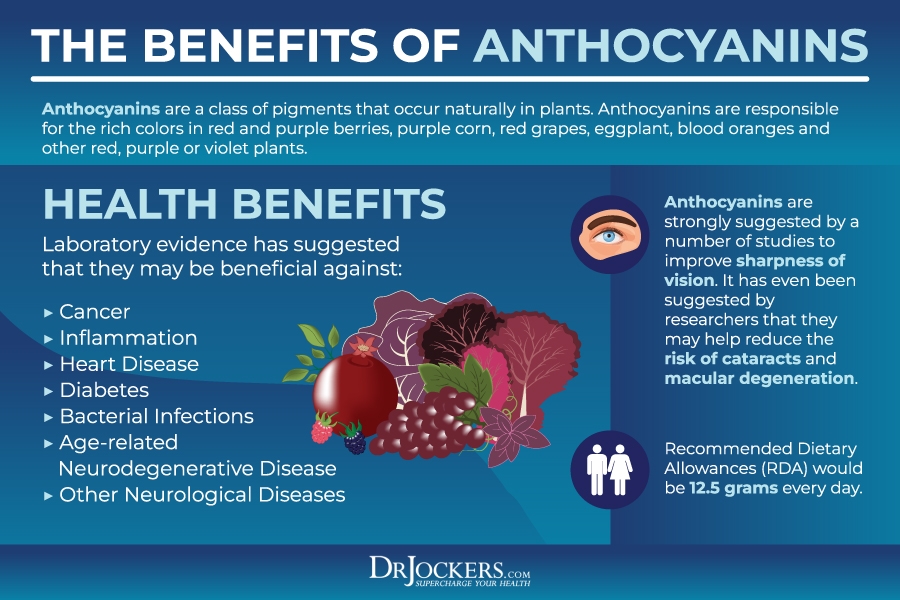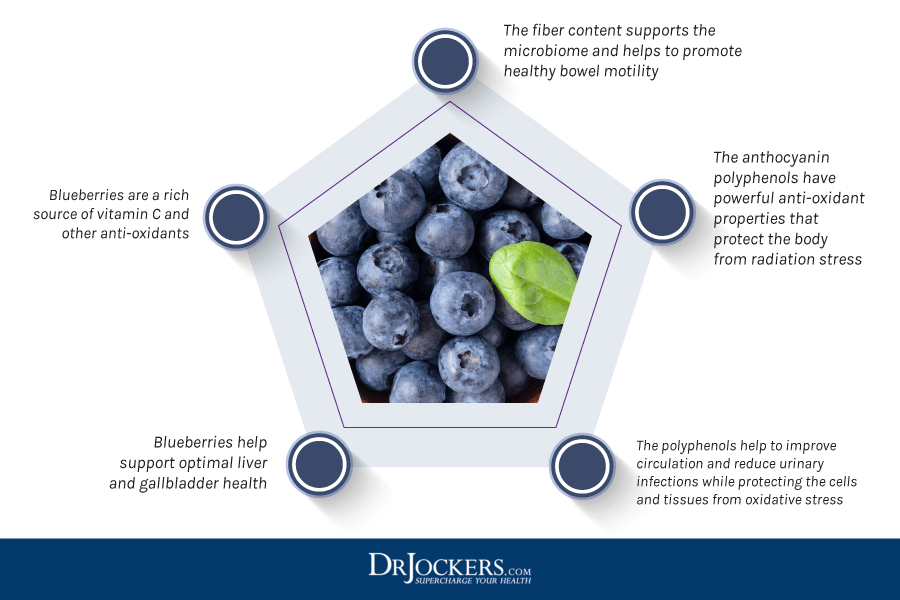
Blueberries Boost Brain Function:
Foods that have an incredible array of health benefits that go well beyond just their nutrient value are considered Superfoods. These foods are typically loaded with a combination of critical fatty acids, antioxidant phytonutrients and essential amino acids. Blueberries contain an extraordinary amount of unique phytonutrients and impressive antioxidant scores that make them a superfood.
Blueberries are a native plant to North America. They grow in shrubs that can be anywhere from 8-10 inches tall or up to 5-6 feet tall. Maine is considered the largest low bush blueberry producing country. Michigan produces the most high bush growing blueberries.
This summer superfood is loaded with antioxidant phytonutrients called anthocyanidins. These nutrients powerfully neutralize free radical damage to the collagen matrix of cells and tissues. In addition, anthocyanins have been shown to improve capillary integrity and enhance the effects of Vitamin C (1, 2).

Blueberries Are a Powerful Superfood:
The antioxidant power of blueberries has been shown to be particularly useful in stabilizing brain function and protecting the neural tissue from oxidative stress (3, 4). Studies have shown improvements in memory and learning while reducing symptoms of depression (5, 6, 7)
The riper the berries the more antioxidant power they contain. To assess the ripeness of the berries look at the color. Riper berries are a darker blue. Blueberry season is mid-late summer, June – August. Most frozen berries are picked at maximal ripeness and frozen.
Blueberries also contain other major phytonutrients including pterostilbene, resveratrol, flavanols and tannins. All of these have been shown to inhibit the development of cancer cell growth (8).

How to Purchase the Best Blueberries:
Blueberries are necessary to purchase organic due to the high amount of petrochemical pesticides that are used on the non-organic varieties. In June of 2014, the Environmental Working Group labeled non-organic blueberries as a significant concern. Blueberries grown in the US were the 14th most pesticide laden out of 53 fruits and vegetables tested. They are just off the list of “Dirty Dozen” with this finding (9).
The term “wild” is considered a marketing term that producers of low bush blueberries have used to help sell their blueberries. Wild blueberries may or may not be organic. One should always check labeling and certifications.
Frozen blueberries are fantastic in shakes and smoothies. Blueberry seeds are significantly smaller than that of other berries such as strawberries, raspberries & blackberries. The small size makes them less challenging to digest and more palatable in a shake than the other berries.

Blueberries Benefit the Body By:
1. Feeding Your Microbiome: The polyphenol antioxidants help to preferentially enhance the development of good microbial species that help you burn fat, absorb key nutrients and detoxify wastes.
2. Protection from UV Radiation: The anthocyanin antioxidants in blueberries help protect us from the damaging effects of UV radiation exposure.
3. Improve Brain Function: The unique array of antioxidants in blueberries has been shown to have powerful effects on cognition, mood and memory.
Best Ways to Use Blueberries:
1) Shakes and Smoothies: This is my favorite way to utilize blueberries. Because their seeds are so small they mix well and don’t have the seedy consistency that you get with strawberries and raspberries. I prefer to use frozen berries for my shakes and smoothies.
2) Salads: Mix some fresh berries in salads and other veggie dishes
3) Grain-Free Cereal: You can use blueberries in various grain-free cereal creations. I like to put cacao nibs, coconut flakes, other nuts and seeds and blueberries in a bowl with coconut milk or coconut yogurt and make a great tasting cereal alternative.
4) Blueberry Muffins: We have various blueberry muffin recipes on our website that are absolutely amazing!!!
5) Blueberry Cookies: Blueberries can also be combined and made into some incredible cookies that I LOVE!!!!
6) Ice Cream: This fruit is a wonderful addition to a healthy homemade ice cream



I use stinging nettle tea everyday – mainly for the querciten to help me with my histamine issues. That should be as good or better then green tea. Nettle is a powerhouse of nutrients – like a multivitamin- right? I have issues with caffeine so even green tea is not an option for me.
Hi Lorena, Stinging nettle can be a great way to strengthen your immune system and alleviate allergy symptoms. Multivitamins contain a variety of micronutrients essential for health. Here is some information that may help you: https://store.drjockers.com/products/histamine-support-pack